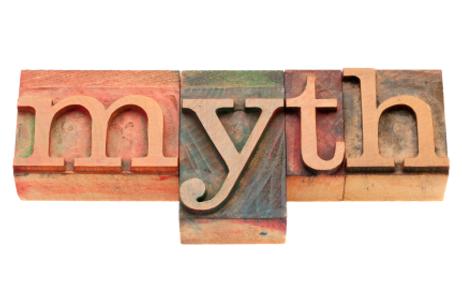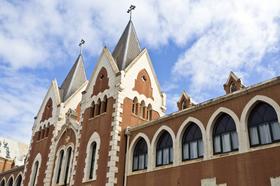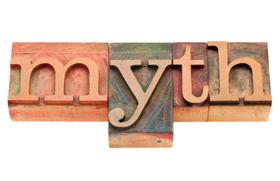10 Misconceptions About Private Schools
There are a lot of misconceptions about private schools. This is probably because private schools are indeed private, and often reluctant to release information to the general public.. Unfortunately, this has more to do with the reality that many journalists don't understand private schools.
On a couple of occasions when I have been interviewed about private schools, the interviewers asked very pointed questions designed to support their preconceived notions that private schools were only for rich kids or kids with issues. They were always surprised when I refuted those kinds of leading questions with facts.
With that experience in mind here are some common myths together with the reasons why they are simply that: myths.
Myth #10: Private school teachers make less than public school teachers.
Not true. This might have been the case years ago.
- Private school teachers are not unionized.
- They do enjoy some perks public school teachers do not have such as housing, meals, and reduced or free tuition for their children.
- Compensation is about the same in both sectors.
- The real disparity seems to occur within private schools themselves.
- Most parochial or religious schools tend to offer compensation which is on the low end of the scale.
- Administrators are not unionized either.
- Deans, admissions directors, development directors, business officers, and heads of school are generally paid competitively.
- You can research the facts by examining not-for-profit schools' Form 990 which has to be filed annually.
This photo by Canva illustrates the disparity between the class sizes .
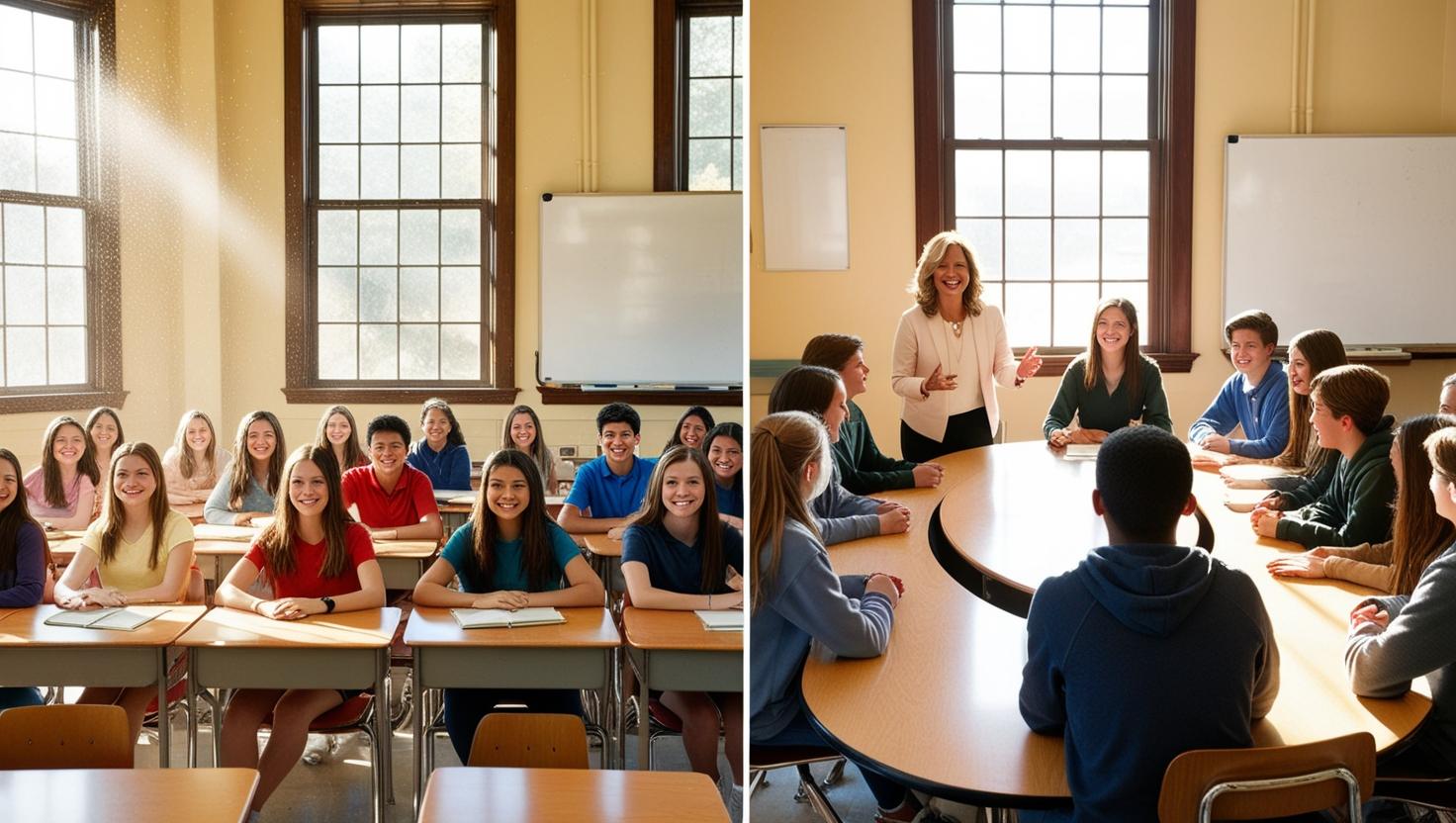
Myth #9: Private schools are for rich kids or kids with behavior problems.
- Many private school students do indeed come from wealthy families.
- Most schools have very diverse student populations.
- That is by design. Schools want their students to grow up to be adults who are tolerant of others.
- If your child has a behavior problem, she will probably be better off attending an alternative school.
Myth #8: Gay teachers and same-sex partners are not welcome in private schools.
- Homosexuality is not tolerated at many religious schools as it does not square with their religious teachings.
- On the other hand, most of the top-tier independent schools have very compassionate, progressive policies regarding sexuality.
- This ties in with schools wanting their communities to be inclusive.
Myth #7: Certification is not required for private school teachers.
Legally, you don't have to have a teaching certificate to teach in a private school.
- But it is just common sense to make sure that you have teaching certification.
- Most private schools will hire you without teacher certification with the understanding that you will become certified within a specified period.
- Several private schools offer intern programs for recent graduates.
- These programs are designed to provide teaching experience under the expert guidance of experienced teachers.
This photo of a teacher studying for her teacher's certificate was created by Canva.

Myth #6: Private schools require their faculty to live on campus.
- Boarding schools typically want their junior faculty to live on campus as dorm masters.
- That means you live in an apartment in the students' dorms and are responsible for supervising the students who board.
- More senior faculty and staff generally live in school-provided housing located on campus.
- Faculty tend to be much more integrated into the life of a private school community than public school teachers are.
- Indeed, community involvement is part of the job description for private school teachers.
- Coaching a sport or supervising an extracurricular activity is almost as important as being able to teach well.
- Private schools seek to educate the whole child.
- That is the reason why teachers are required to do more than teach in a private school.
- Most day schools don't require their faculty to live on campus.
Here is a greeting from students at Foxcroft Academy. in Dover, Maine.
Myth #5: Private school teachers must wear academic gowns.
- Many English public schools, called private schools in the U.S., such as Eton, still require teachers to wear academic gowns.
- Considering how cold and draughty English classrooms can be, that's probably not a bad idea.
- American schools got rid of that requirement decades ago.
- Yes, the image promoted in the Harry Potter series is just that - fiction.
Myth #4: If your cousin went to a private school, you are guaranteed admission to that school.
- Being a legacy helps get your application reviewed.
- But the only sure-fire way to get admitted is to offer what the school is looking for.
- On the other hand, if your older brother went to the school or currently attends it, chances are pretty good that you will get in since your family is a known quantity.
- This fits in with private schools' viewing of a child's education as a partnership of three: the school, the parents, and the child.
- If the school is already familiar with you and how the partnership is working, that's a check in that box.
Myth #3: Private schools cost a fortune.
Some do. Many don't. In fact, a few private schools are actually tuition and expense-free, thanks to the munificence of their benefactors.
- The trick is to find a school you like and then apply for financial aid.
- Many private schools offer generous aid packages to qualified students.
- Always ask about financial aid.
- You will discover that a private school education is much more affordable than perhaps you thought.
This photo of parents looking at a tuition bill was generated by Canva.
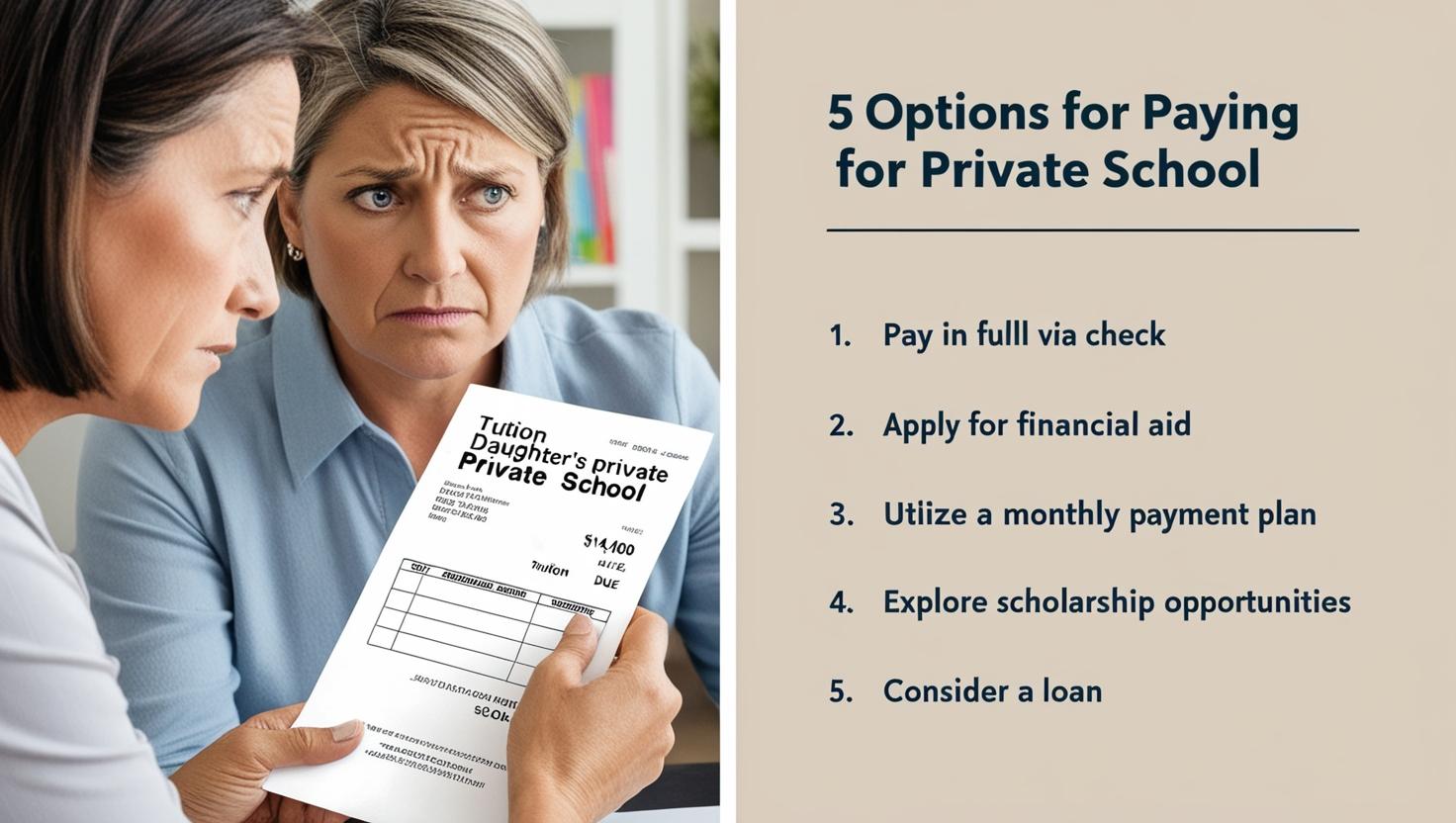
Myth #2: Going to private school guarantees that you will get into the college of your choice.
Would that were true.
- Unfortunately, like anything else in the United States, entrance to college is a matter of having good grades, a well-rounded dossier, and the luck to apply to a college that is not too competitive and selective.
- Far more students apply to Harvard, Princeton, and Yale than there are places.
- The reality is that there are hundreds of lesser-known colleges and universities out there that offer the programs that you want.
- It is true that private schools generally offer excellent college preparation.
- Indeed it is one reason so many schools have prep in their names.
- Examine the academics at the private schools in which you have an interest.
- You will find plenty of solid college-preparatory curricula available.
Here's a look at how Brandeis University handles admissions.
Myth #1: Private schools are just for geniuses.
The truth is that students go to private schools because they want to learn.
- Not because they are geniuses. Most students are accepted at a private school because they have the potential to be good students.
- In an atmosphere where learning is cool and teachers will take the time to help, encourage, and nurture you, your child's intrinsic genius will shine forth.
- The academic work in most private schools is challenging. And there is a lot of it.
- That is one of the reasons we parents decide to send our children to a private school in the first place.
- We want them to be stretched and developed to their fullest potential.
- Private schools educate about 10% of the nation's school-age children.
- They do a good job in spite of the many misconceptions about them.
As we've explored these common misconceptions about private schools, remember that each school has its own unique character and approach to education.
- The modern private school landscape offers diverse options, from progressive day schools to traditional boarding institutions, from faith-based academies to secular preparatory schools.
- When choosing the right educational path, look beyond the myths and investigate each school's specific offerings, community, and values.
- Take time to visit campuses, talk with current students and parents, and experience the environment firsthand.
- Armed with facts rather than misconceptions, you'll be better equipped to make an informed decision about whether private education aligns with your family's educational goals and values.
- The right school choice ultimately comes down to finding the perfect match between your child's needs and the school's mission and culture.
Questions? Contact us on Facebook, Instagram, or YouTube. @privateschoolreview.

